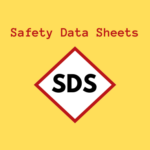Why Every Business Seeking ISO Certification Needs a Quality Management System

Achieving ISO certification has become a significant milestone for companies aiming to enhance their credibility and operational excellence nowadays. ISO, or the International Organization for Standardization, sets globally recognized standards across various industries, ensuring quality, safety, efficiency, and consistency. One of the cornerstones for obtaining and maintaining ISO certification is the implementation of a robust Quality Management System (QMS). Here’s why every business seeking ISO certification needs a QMS, and why Trackmedium QMS stands out as the best system for this purpose.
Understanding Quality Management Systems
A Quality Management System (QMS) is a formalized framework that documents processes, procedures, and responsibilities for achieving quality policies and objectives. A QMS helps coordinate and direct a business’s activities to meet customer and regulatory requirements and improve its effectiveness and efficiency continuously.
The Vital Role of QMS in ISO Certification
- Meeting ISO Standards Requirements
ISO standards, such as ISO 9001 for quality management, ISO 14001 for environmental management, and ISO 45001 for occupational health and safety, have specific criteria that organizations must fulfill. A QMS is designed to meet these precise standards. By having a QMS in place, businesses can systematically manage and control processes, ensuring they meet the high standards set by ISO. This structured approach not only aids in achieving certification but also in maintaining it over the long term. - Enhancing Customer Satisfaction
Customer satisfaction is a primary goal of any business. A well-implemented QMS focuses on understanding and meeting customer needs and expectations consistently. It ensures that the products or services delivered are of high quality, which in turn builds customer trust and loyalty. For companies pursuing ISO certification, demonstrating a commitment to quality through a QMS can significantly enhance customer perception and market reputation. - Streamlining Operations and Reducing Waste
A QMS provides a systematic approach to managing business processes. It helps in identifying inefficiencies, reducing waste, and optimizing resource use. By streamlining operations, businesses can reduce costs and improve productivity. This efficiency is a critical component of ISO standards, which emphasize continual improvement and operational excellence. - Facilitating Continuous Improvement
Continuous improvement is a fundamental principle of ISO standards. A QMS incorporates mechanisms for regular review and improvement of processes. It encourages a culture of quality where employees are engaged in identifying areas for improvement and implementing solutions. This proactive approach not only helps in maintaining ISO certification but also drives long-term business success. - Ensuring Regulatory Compliance
Many industries are subject to stringent regulatory requirements. A QMS helps businesses stay compliant with relevant laws and regulations by providing a structured approach to managing compliance issues. This is particularly crucial for ISO certification, as adherence to legal and regulatory standards is a key requirement. By ensuring compliance, businesses can avoid legal penalties and enhance their standing with stakeholders. - Risk Management
ISO standards emphasize the importance of risk-based thinking. A QMS includes processes for identifying, assessing, and mitigating risks. By proactively managing risks, businesses can prevent potential issues that could compromise quality or lead to non-compliance. Effective risk management is vital for achieving and maintaining ISO certification, as it demonstrates a company’s commitment to quality and reliability. - Promoting Employee Engagement and Training
A successful QMS requires the involvement of all employees. It promotes a culture of quality by engaging employees at all levels and providing them with the necessary training and resources. This engagement not only improves process adherence but also fosters a sense of ownership and accountability. Well-trained and motivated employees are essential for meeting ISO standards and achieving organizational goals.
Why Trackmedium QMS is the Best Choice
When it comes to selecting a QMS to achieve ISO certification, Trackmedium QMS stands out as the superior choice. Here’s why:
- Comprehensive Features
Trackmedium QMS offers a wide range of features tailored to meet the specific needs of various industries. From document control to CAPA management, Trackmedium QMS ensures that all aspects of quality management are covered comprehensively and that your ISO certification is guaranteed. - User-Friendly Interface
Trackmedium QMS’s intuitive interface makes it easy for employees at all levels to use the system effectively. This ease of use translates to better adoption rates and more efficient training, essential for maintaining ISO standards. - Scalability
Whether you are a small business or a large enterprise, Trackmedium QMS scales to fit your needs. This flexibility ensures that as your business grows, your QMS can grow with you, providing continuous support for ISO compliance. - Real-Time Reporting and Analytics
With Trackmedium QMS, you have access to real-time reporting and analytics, providing insights into your quality management processes. This data-driven approach helps in making informed decisions and identifying areas for improvement quickly. - Regulatory Compliance
Trackmedium QMS is designed to help businesses stay compliant with industry-specific regulations and ISO standards. Its robust compliance management features ensure that you are always audit-ready.
Conclusion
In conclusion, a Quality Management System is indispensable for any business seeking ISO certification. It provides a structured framework for managing quality, enhancing customer satisfaction, streamlining operations, ensuring compliance, managing risks, and fostering continuous improvement. By implementing a robust QMS, businesses can not only achieve ISO certification but also drive operational excellence and long-term success.
Trackmedium QMS emerges as the best system for achieving ISO certification due to its comprehensive capabilities. Investing in Trackmedium QMS is not just about meeting certification requirements; it’s about building a foundation for sustainable growth and competitiveness in the global market. As industries continue to evolve and customer expectations rise, a commitment to quality through Trackmedium QMS will remain a crucial differentiator for businesses worldwide.


















